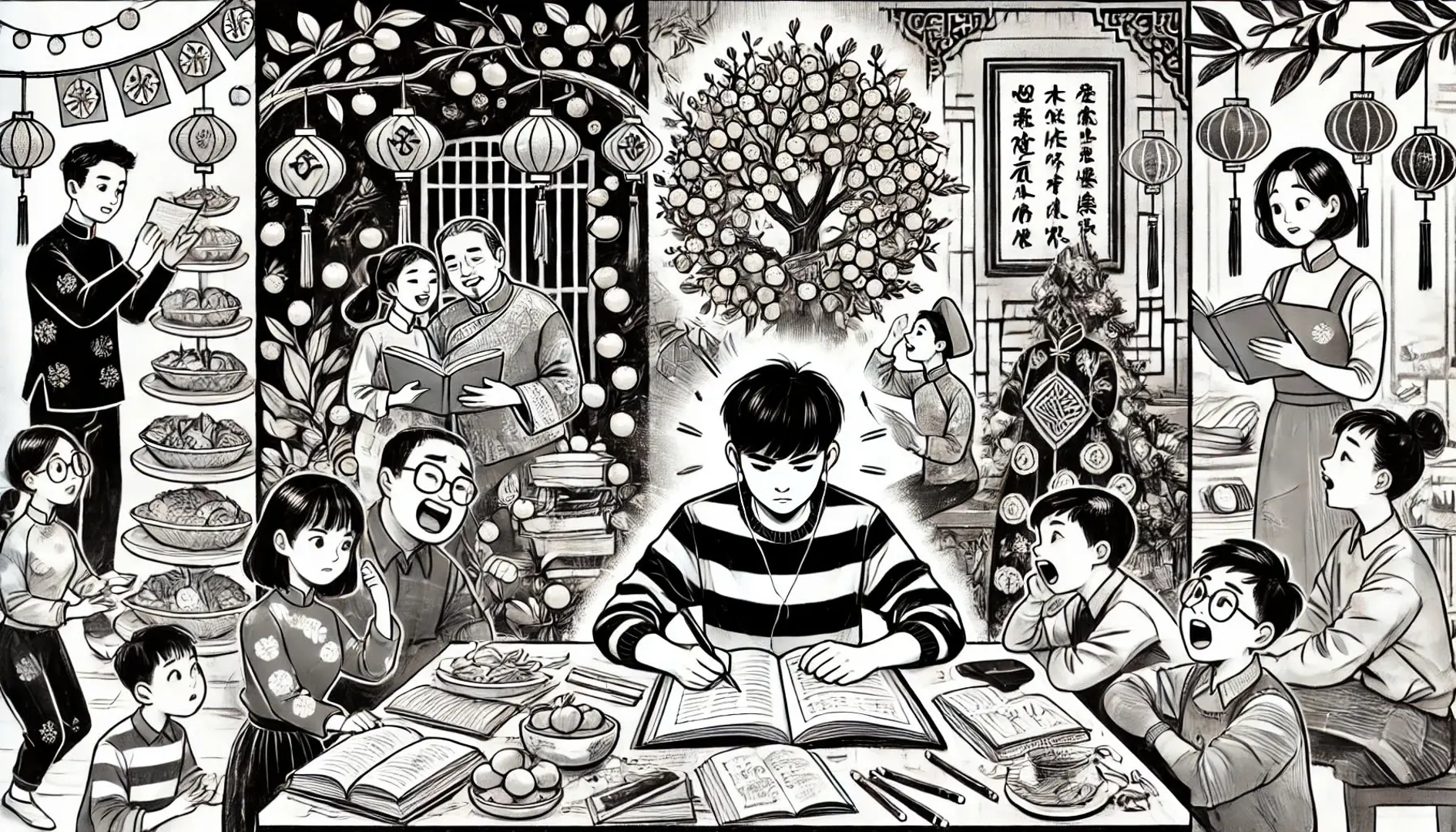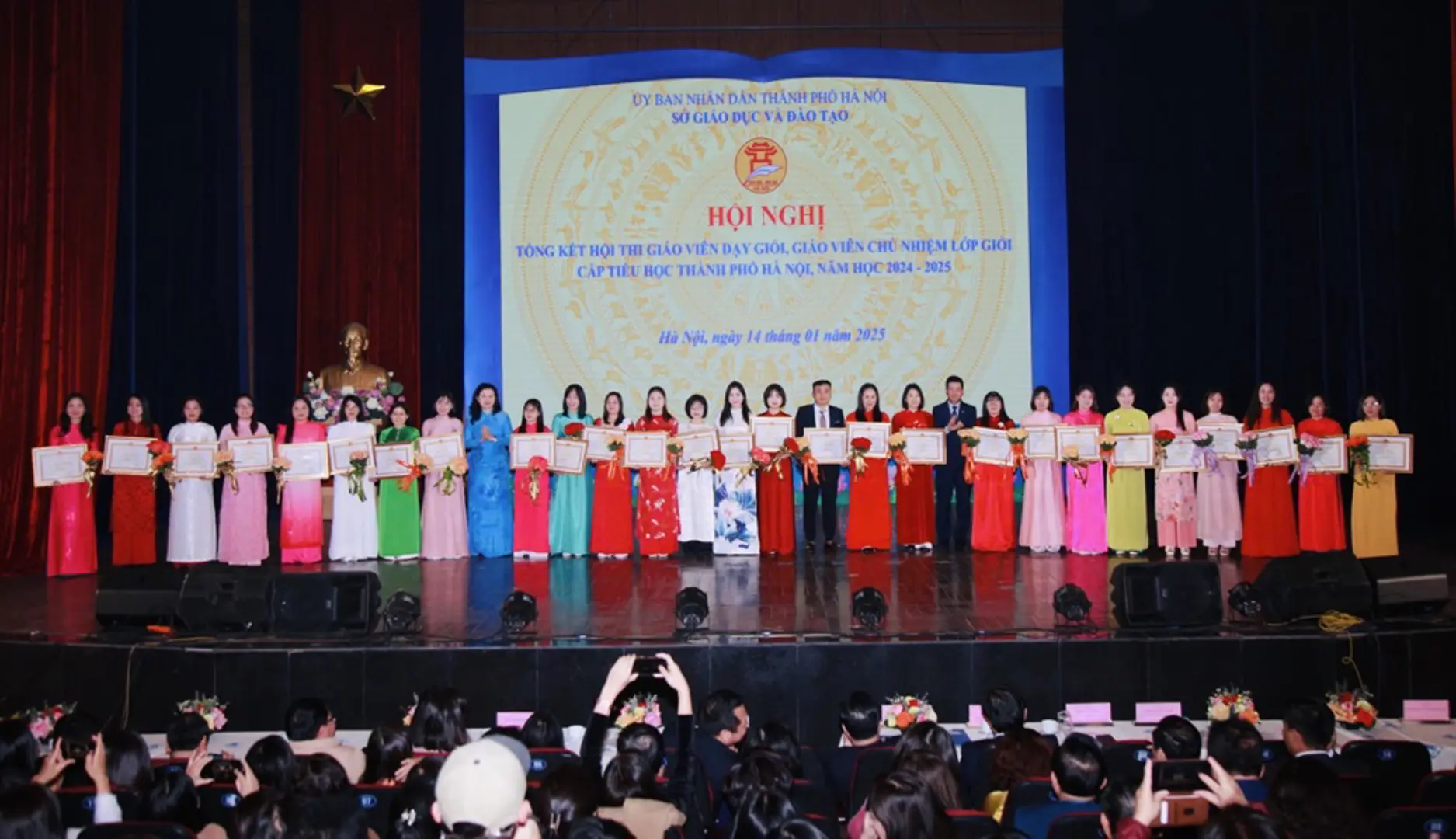Hanoi tackles food safety management issues
The city produces about 60% of the food consumed, the remaining is imported from other provinces and abroad.
Hanoi has seen improvements in the quality of food services, but there are still many challenges and shortcomings in the food safety control system.
According to a report by the Hanoi Municipal People's Committee, Hanoi currently has 72,671 enterprises engaged in food production, processing, trade, and catering. Of these, 39,882 are under the supervision of the health sector, 16,462 are controlled by the agriculture sector, and 16,327 are overseen by the industry and trade sector.
The city produces about 60% of the food consumed, the remaining is imported from other provinces and abroad.
Inspectors check the origin of goods at a supermarket in Hanoi. Photos: The Hanoi Times |
During the first eight months of this year, inspections of nearly 19,000 establishments revealed that over 16,000, or nearly 82%, were considered food-safe. The report found that 96%, or as many as 1,000, of the 1,050 food samples tested met the required standards.
According to the Hanoi Department of Health, the positive results were attributed to close interagency coordination on communication campaigns to raise food safety awareness among food business owners and food service workers.
While progress has been made in ensuring food safety, the department noted that more still needs to be done.
"Ensuring food safety must be done on a regular and continuous basis," the department said, calling on authorities to take drastic measures and impose severe punishments on counterfeit and substandard goods.
Dissemination campaigns and information should be strengthened to raise awareness of food safety and hygiene among vendors, consumers, and food management officials.
The department also called for close coordination between local authorities and relevant agencies in the inspection and handling of food safety violations.
Dang Thanh Phong, Head of Hanoi's Food Safety and Hygiene Department, said that in recent years, food safety issues have always received special attention from the city's leaders, who have focused on directing synchronized and effective implementation.
"The Hanoi People's Committee has implemented a series of immediate fixes and targeted initiatives to guide all sectors in ensuring the safety of the city's food supply. As a result, food producers, processors, traders, and consumers now have better knowledge and practices for food production, business, and consumption," he continued.
However, Phong acknowledged that challenges remain because the problem involves many areas of government. The transport, trade, and smuggling of unsafe food from other provinces to Hanoi still exist.
The awareness of managers of food processing facilities and street food stalls is still poor. The majority of infractions that occur at the commune level only result in warnings rather than legal penalties.
The majority of slaughterhouses are in residential areas and fail to meet food safety and hygiene standards.
Food of uncertain origin continues to be transported into the city from other provinces. A large number of consumers are reluctant to report establishments selling unsafe food to an authorized agency.
In addition to pointing out food safety infractions, Tran Thi Thu Lieu, Deputy Head of the Department of Food Poisoning Control and Communication under the Ministry of Health, brought up a number of challenges and issues with handling functional food advertising.
"These violations are perpetrated on websites and social networks with servers located abroad, the subject of advertising and sale of violating products cannot be identified, and there is no basis for handling violations. Advances in artificial intelligence (AI) and digital technology have made it easy to produce films and videos with images of doctors, scientists, and medical facilities to promote and sell food with fictitious or exaggerated purposes, according to Lieu.
It's still challenging to regulate advertising and commerce across borders. Certain online trading platforms lack the technological tools necessary to control the content of advertisements. In addition, the process of registering and starting a business is far too easy.
Need for close coordination
According to Directive No. 17-CT/TW of the Secretariat on strengthening food safety and security in the new situation, there will be only one lead for food safety management. However, there is still a need for smooth and close collaboration between ministries and sectors.
Organic vegetable production ensures food safety in Hanoi. |
Tran Dang, former Director of the Department of Food Safety under the Ministry of Health, said food safety inspection must be carried out by specialized inspection forces with adequate training, and food safety quality assessment must be done by a third party.
"In reality, however, the administrative agencies inspect from A to Z, which is unreasonable. The Ministry of Health regulates only six product groups, the Ministry of Industry and Trade controls eight, and the Ministry of Agriculture and Rural Development oversees 19," Dang said.
In addition, the regulations and legal documents on sanctions are still inadequate, and the level of handling has not been strict enough to deter, which affects the assurance of food safety. Dang also pointed out the shortcomings in the Food Safety Law, from the definitions to the assignment of the scope of management and regulations on food safety control. For example, Decree 15/2018/ND-CP stipulates that food traders must be classified as conditional businesses, but the Food Safety Law states that there are foods for which businesses declare their own quality, subject to inspection by the authorities.
"The question is, is there any company that does this voluntarily? This method is not reasonable. Meanwhile, in the world, all products must be certified by the food authority to ensure food safety before they are put into circulation. I recommend that we revise the Food Safety Law to be in line with international law and adapted to the reality of Vietnam," Dr. Tran Dang said.
At the meeting of the Central Interdisciplinary Steering Committee on Food Safety, the then Deputy Minister of Public Security, Nguyen Duy Ngoc, suggested that in order to overcome the blurred division of responsibilities in food safety management at the local level, especially at the commune and district levels, it was necessary to strengthen inspection and deal more strictly with food safety violations.
"In addition to strong communication, the authorities must immediately set up a database to handle administrative food safety violations as a basis for criminal prosecution of repeat offenders," Ngoc stressed.
To solve the current food safety problem, Dang Thanh Phong, Head of the Hanoi Food Safety Department, suggested that there should be a synchronization of the following solutions: mechanism - policy, science and technology, actions of the State, producers, and consumers.
"On the regulatory side, legal documents and regulations related to food safety management should be adjusted to the practical situation. Relevant authorities need to strengthen inspection and supervision of food production and trading enterprises, and strictly punish violators," Phong said.
On the producer side, he stressed the need to improve professional ethics among businessmen and to refrain from putting personal interests first. "For consumers, be careful in choosing and using food, say no to food of unknown origin, food that is floating in the market," Phong added.

Mooncake food safety rules enforced in Hanoi
Hanoi authorities have issued an urgent call for the traceability and recall of mooncakes that fail food safety standards during the upcoming Mid-Autumn Festival next month.

Enforcing food safety standards in Hanoi's craft villages
Many workshops have invested in better equipment and improved compliance with food safety regulations.

.jpeg)
.jpeg)






















